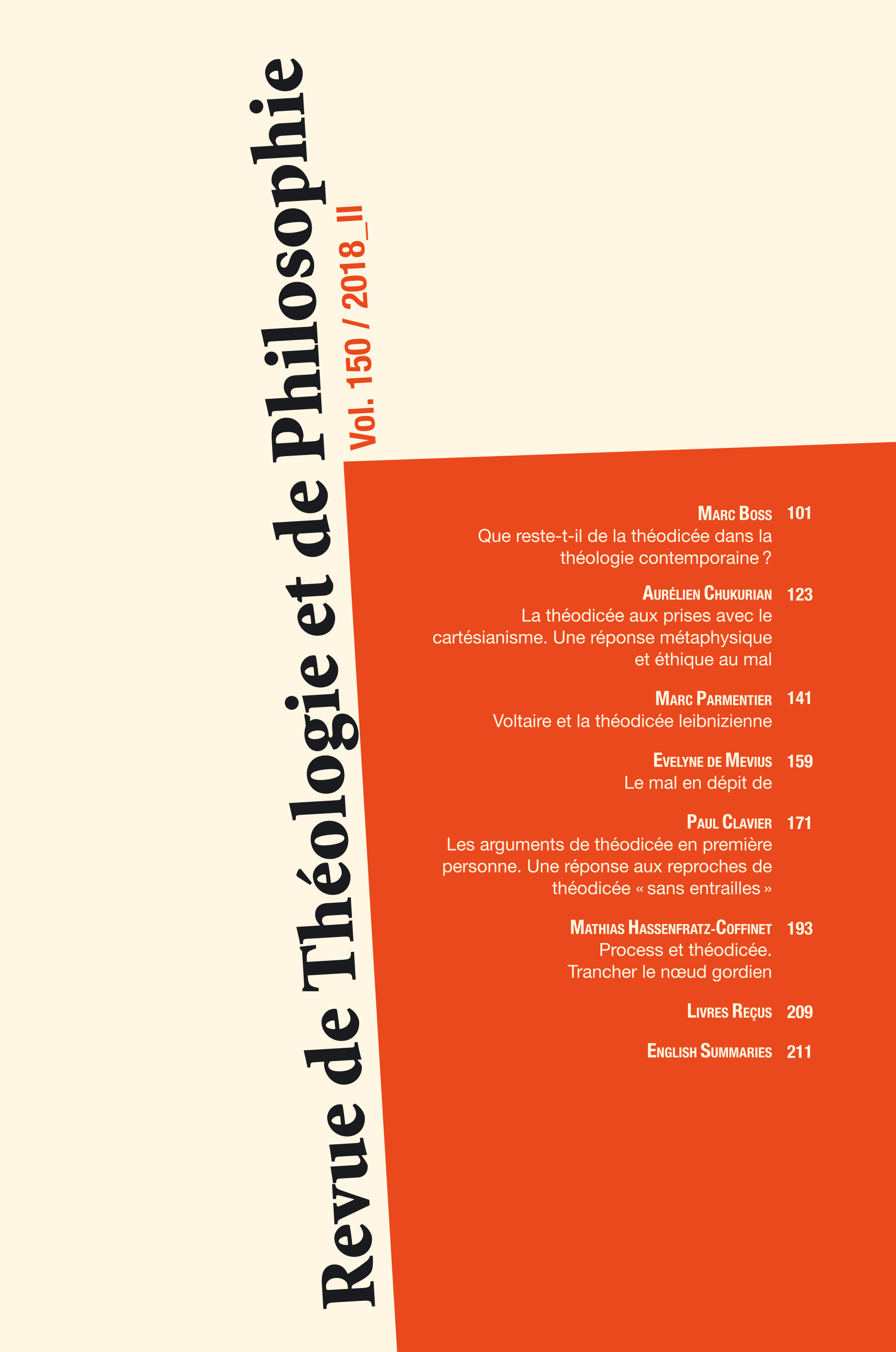Cartesianism’s Grappling with Theodicy
A Metaphysical and Ethical Response to Evil
Abstract
Descartes and Leibniz, on the basis of their respective philosophical foundations, articulate two models of theodicy which, despite their irreducible differences, converge in their ways of holding together the metaphysical and the ethical dimensions. Starting with Leibniz, the article envisions, for heuristic purposes, a Cartesian theodicy. The goal of the article is twofold: first, to assess the points of disagreements and agreements between Descartes and Leibniz on the locus of theodicy, and second, to show how being anchored in Cartesian philosophy allows one to think anew about theodicy today and to attribute a certain relevance to it.
How to Cite
More Citation Formats
Issue
Most read articles by the same author(s)
- Aurélien Chukurian, Descartes’ Approach of the Divine Attributes, Revue de Théologie et de Philosophie: Vol. 150 n° 4 (2018):
- Aurélien Chukurian, Descartes and Theology, Revue de Théologie et de Philosophie: Vol. 152 n° 3 (2020):
- Aurélien Chukurian, Philosophy in the Hollow of Theology, Revue de Théologie et de Philosophie: Vol. 155 n° 4 (2023): 60 ans du Séminaire de culture théologique (Lausanne)
